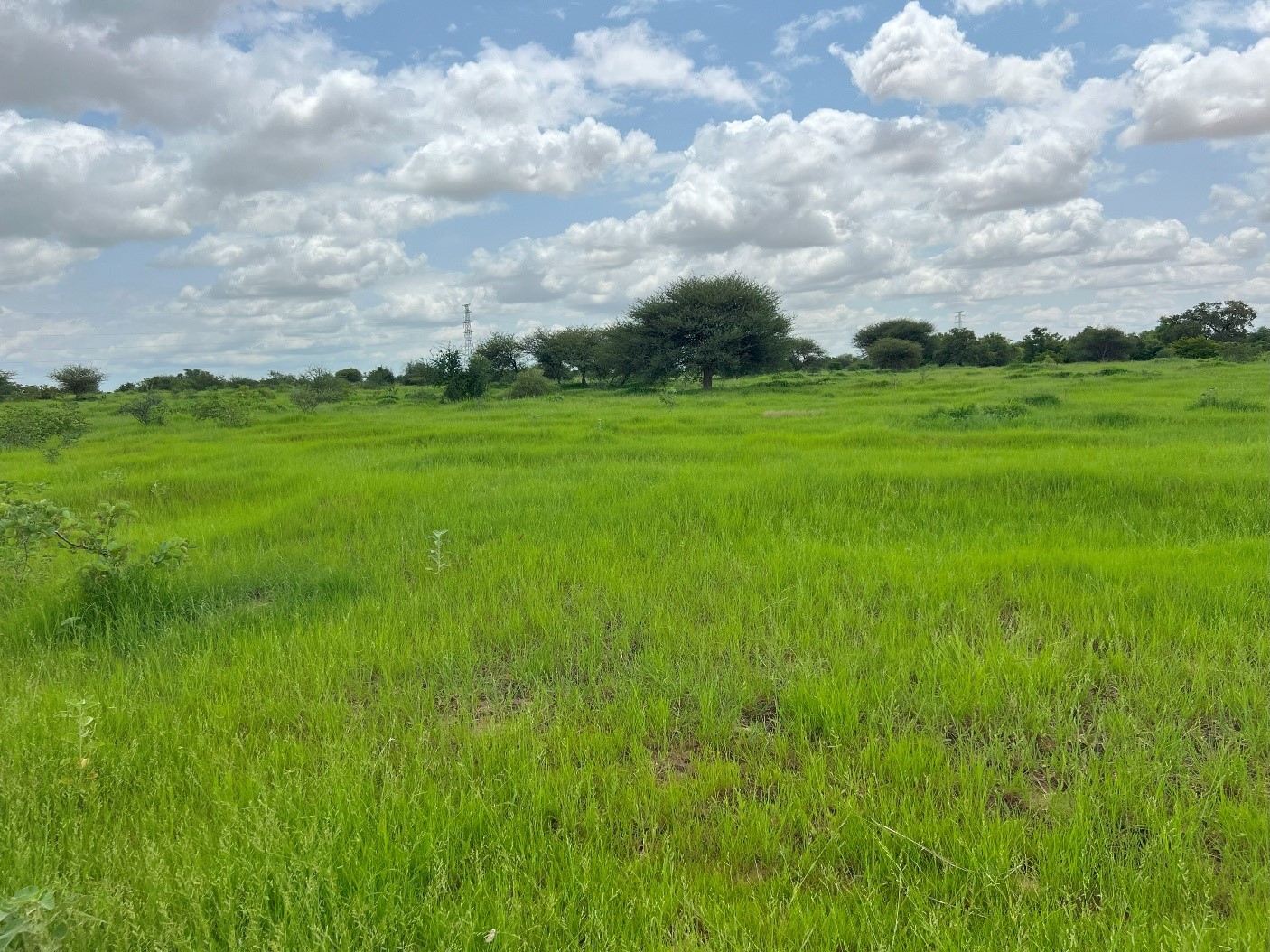Reviving the land, nurturing hope: The story of Maman in Niger
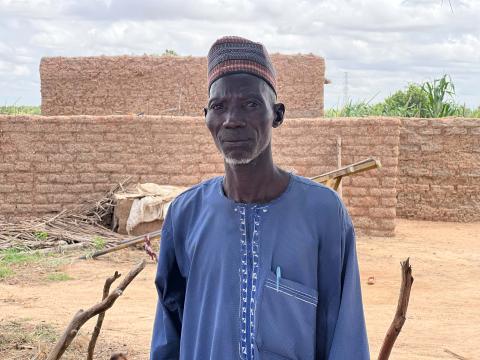
The village of Bouloun Kourou, located in the Maradi region of Niger, once faced overwhelming economic and nutritional challenges. Advanced land degradation, water scarcity and food insecurity forced many families to flee their homes. Maman Issoufou, a 62-year-old father of thirteen, says:
'I've lived here since I was one year old. Like the other inhabitants of the village, the land is our main source of subsistence and survival. Unfortunately, due to various factors, this source began to become depleted and unproductive. It has become a desert, devoid of grass and life. Over the increasingly difficult years, my household became increasingly precarious. In order to feed my children, I sold one hectare of land every year for four consecutive years. Even my inherited eight hectares were so degraded that I had to abandon them.
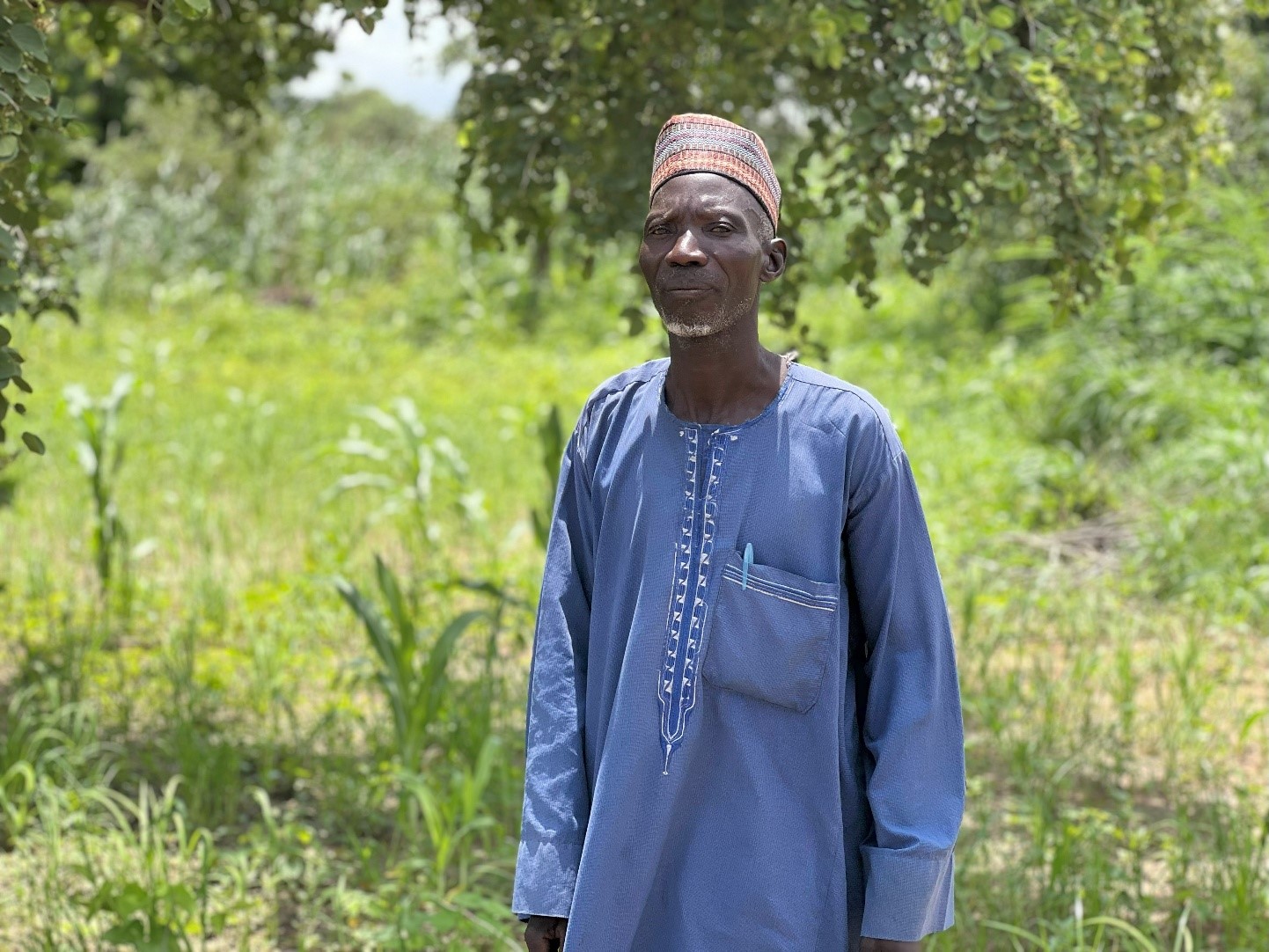
The situation was critical. Animals were starving, children were suffering from malnutrition and access to water was a nightmare. "We only had one 79-metre-deep well for the whole village. Drawing water was a daily struggle.'
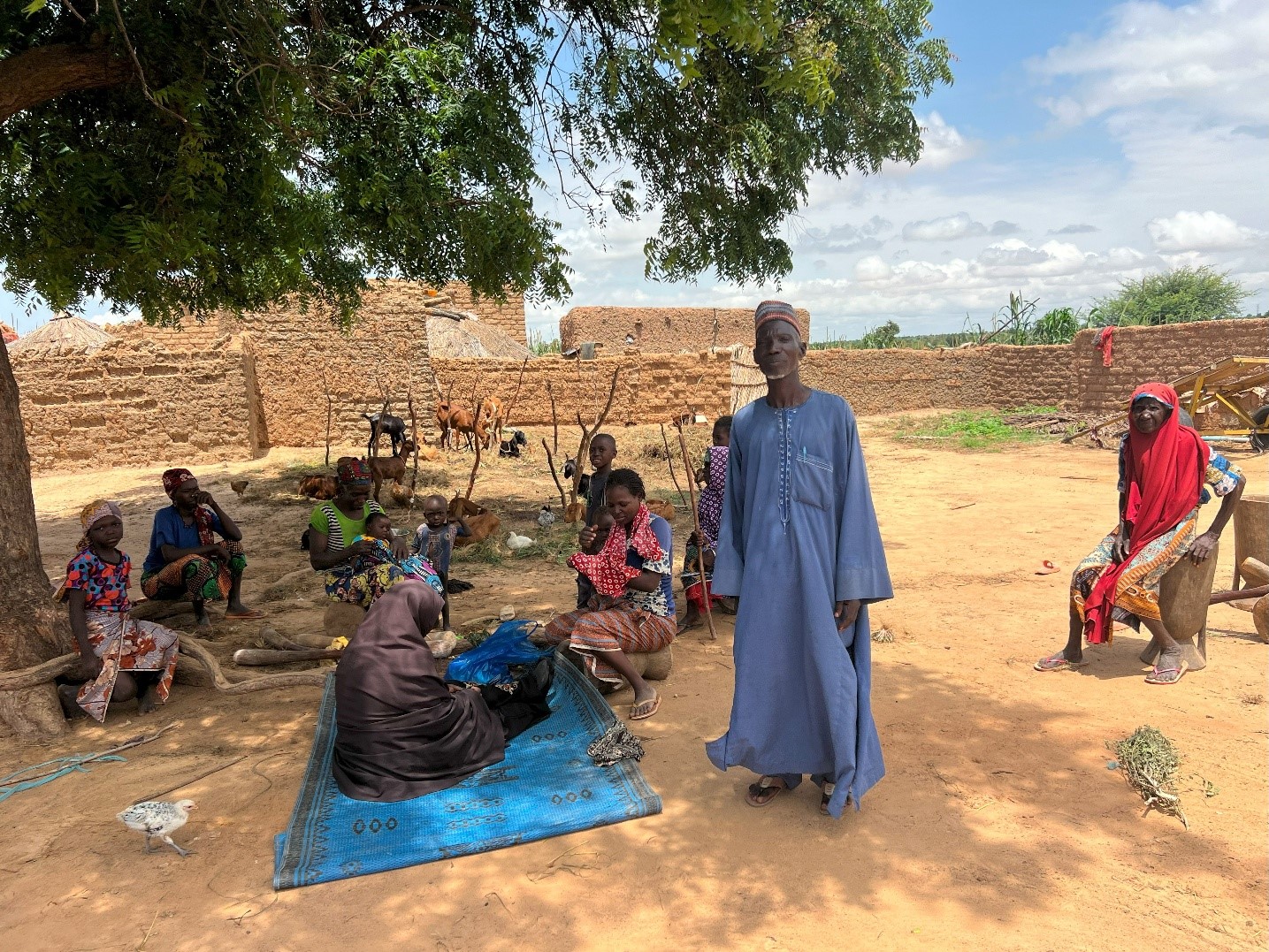
"But in 2019, a decisive turning point came with the arrival of the Maradi Integrated Resilience Project (MIRP), which was funded by the World Food Programme (WFP) and implemented by World Vision. The project focused on restoring degraded land and improving food security.
"The project took my eight hectares of abandoned land and restored them. Today, I'm amazed — the field is green and productive again.' »
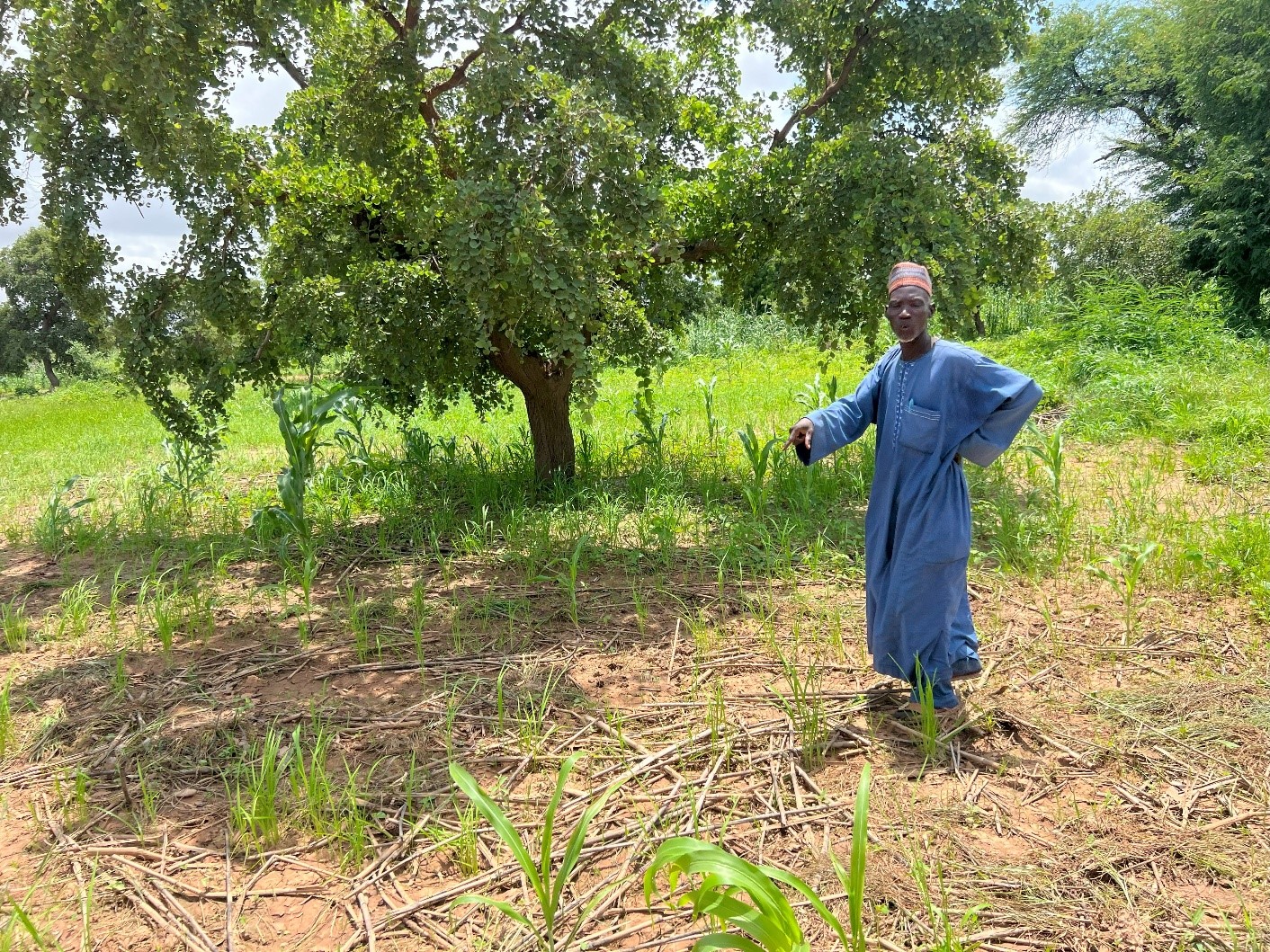
Thanks to Food for Assets (FFA) activities, Maman Issoufou was able to work on recovery sites and receive a monthly salary: 'I received 32,500 CFA francs for 20 days' work, and then 19,500 francs for 15 days.' I worked for seven months of the year. For three years, we also received 26,000 CFA francs in bonuses during the rainy season."
With this income, Maman Issoufou was able to rebuild his livestock, rent an additional 4.5 hectares of land to increase his production, and earn an extra 9,000 francs a day by renting out his animals for ploughing.
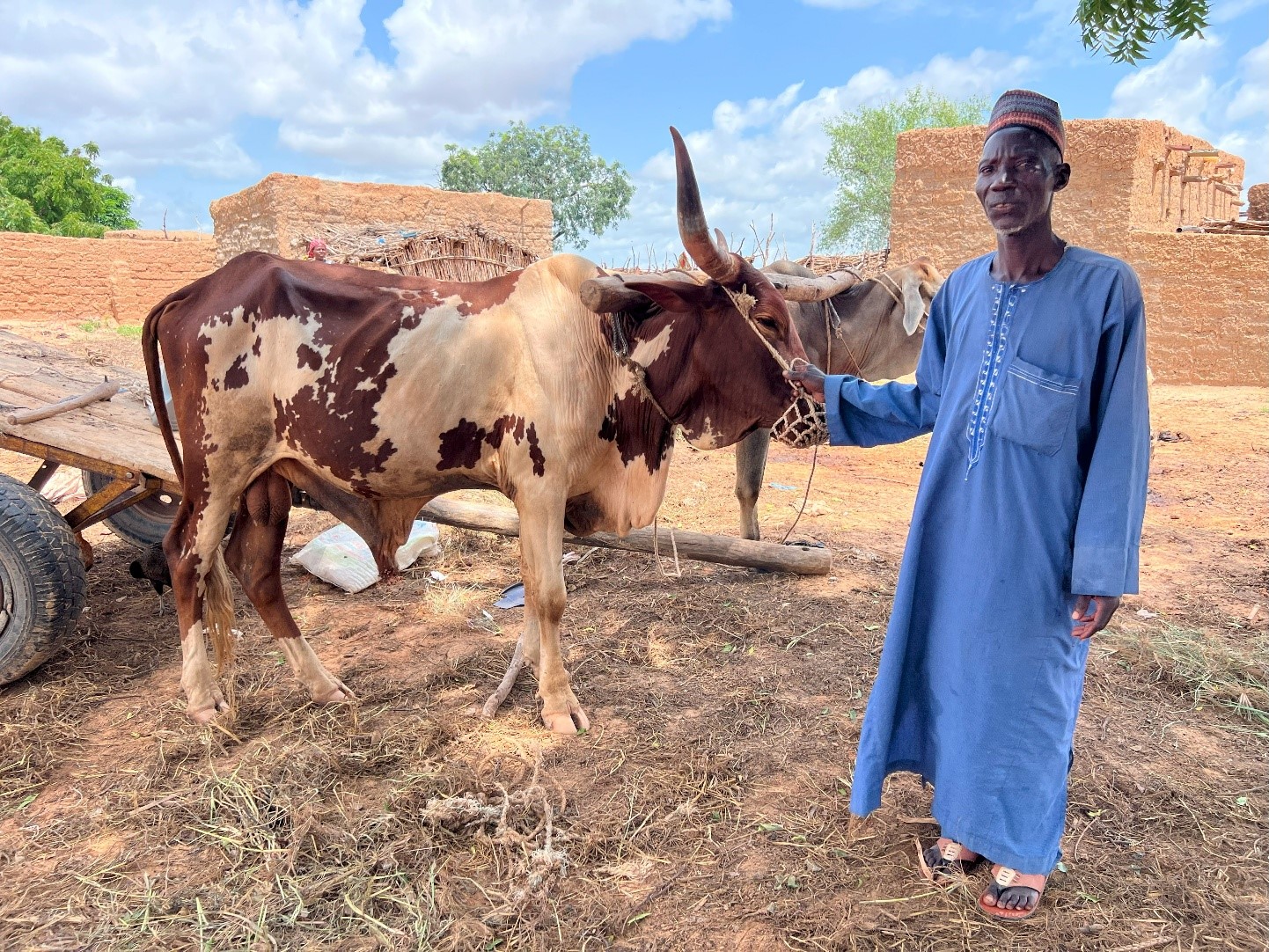
The project wasn't limited to land. It also had an impact on nutrition: 'We received flour for children and nutritional supplements to combat malnutrition.' On the water front, a solar-powered borehole was installed: 'This borehole freed us from the ordeal of searching for water and quelled our thirst.'
Today, Maman Issoufou is a model of resilience in his village. He no longer has to sell his land to make a living. He produces and invests, and feeds his family with dignity.
"Without the project, I wouldn't know where I would be today.But there are still needs: "Now we need a market garden to grow vegetables and improve our diet. We also need an additional water fountain for the village and another one at the nursery."
His message is clear: "We are truly grateful to the project and its initiators, the WFP and World Vision. Thanks to them, our village has been revitalised.'
